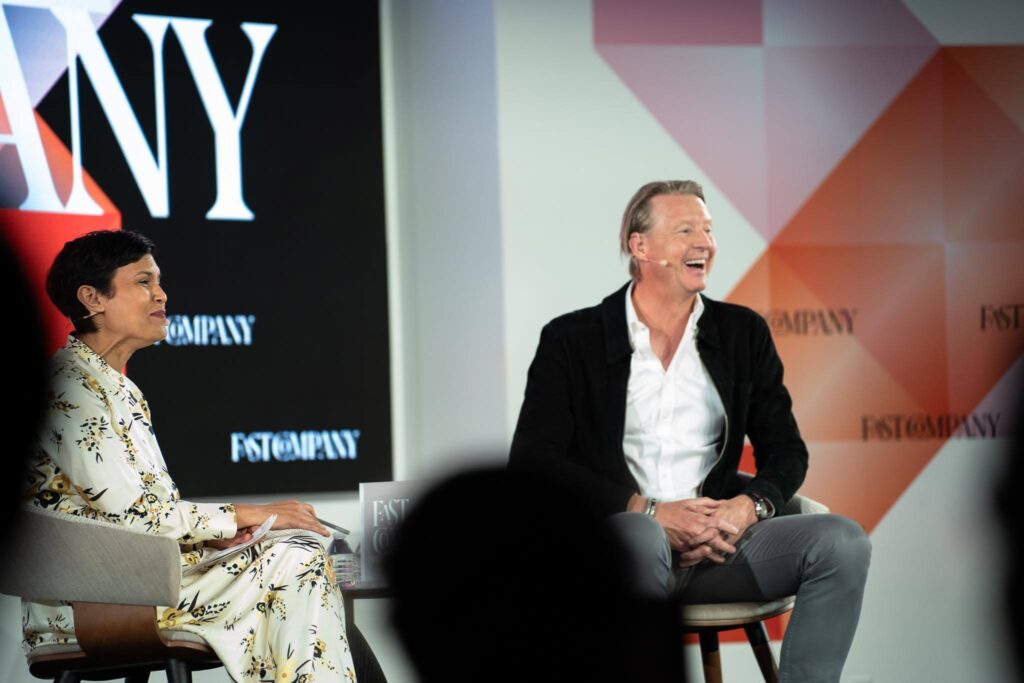If you were to ask anyone about it last year – they’d say that “ESG” (Environmental, Social, & Governance – when it comes to financial reporting) is the next big thing. For accountants, it was supposed to be as big as SOX, (that’d be the Sarbanes-Oxley Act – the law that holds executives accountable, and redefined financial reporting standards). Marketers were already greening and queering their marketing, and business leaders were boasting about it. When the SEC announced in early 2022 that it was creating a framework for ESG reporting, consulting and advisory firms were preparing guidance measures – ready to pounce at the opportunity.
This year, the conversation is a little different.
Much like the other 3-letter acronyms under attack, “ESG” is the latest addition to the likes of “CSR,” “CRT,” and “DEI.” (that’s Corporate Social Responsibility, Critical Race Theory, and Diversity, Equity & Inclusion). These acronyms and what they represent are now caught in the middle of a cancel culture-fueled politics by the right-wing extremes calling themselves anti-”woke.”
A real "oh sh*t" moment
In the last year, the backlash became real and close to home for many companies.
A series of laws passed by Texas and Florida governments limited ESG considerations for pension funds and insurance companies.
The Supreme Court’s reversal on Affirmative Action threatened corporate DEI initiatives.
Target and BudLight’s rainbow capitalism did not bode well with either end of the political spheres. First sparking boycotts, then being blamed for performative activism after they flip flopped their original support. In what could only be best described as a big mess, both companies’ sales dropped by double digits, at least briefly.
These were all material dints. It meant that if not done right, ESG initiatives could hurt companies where it hurts the most, their pockets.
Another “oh sh*t” moment? Tobacco companies crushing their ESG reports, coming up on top in rankings when compared to other industries. Something a global tobacco industry watchdog called “an inherent contradiction” in a recent 2022 brief, referenced by some panelists.
What leaders are saying:
How did the political pushback manifest at NYC Climate Week? It was clear at the panels I attended that most leaders chose to tiptoe around the politics, signaling a noteworthy tonechange in the climate conversation.
Although some have played off these pushbacks as political theater, the shift is real and fundamental. Business leaders now face a tough dilemma: succumb to the politics and backtrack on their prior commitments, cut through the noise and push forward, or tiptoe around the whole situation.
When asked whether ESG is seeing a retreat at a panel during Fast Company’s Innovation Festival, Verizon CEO Hans Vestberg described it as not a retreat but instead calling it “logical decisionmaking that considers all stakeholders” in doing the right things. He noted that although the backlash has caused other leaders to shy away from these conversations, it hasn’t changed anything operationally for Verizon. This is because according to Versberg, their focus on society is “100% connected to [their] strategy,” which may not be the case for other companies.
At another panel hosted at Capgemini’s “Climate Connect” event, CSOs from financial services companies, including Fidelity and BNP Paribas, shared how they’re navigating the political landscape. Here, the leaders spoke about fully integrating sustainability into a company’s strategy – seeing this transition as a logical business opportunity, too, much like Verizon. No one mentioned “ESG” by name, but they did acknowledge that sustainability is being self-censored due to political backlash. Is ESG – or at least the main ideas behind it, going anywhere? No. But the way we are talking about it is certainly different.
In April 2022, when asked about the role that sustainability should play for “The Green Insider,” Podcast, I said that “sustainability to me is just common sense.” It seems that leaders agree.
What's to come?
The days of “ESG” for the sake of “ESG” may be numbered, along with diversity for diversity’s sake. Forward-thinking companies are already incorporating logical climate decisions into their business models and core strategies, as opposed to a report. Companies will integrate sustainability into their strategy as a whole but may have to stick to advocacy that pertains to benefit their business and stakeholders.
Of course, in the case of the Environment, it pertains to everyone. As for the “S & G” the Social & Governance – the story is yet to be fully told. One thing is clear – inclusion and sustainability are not going anywhere.
